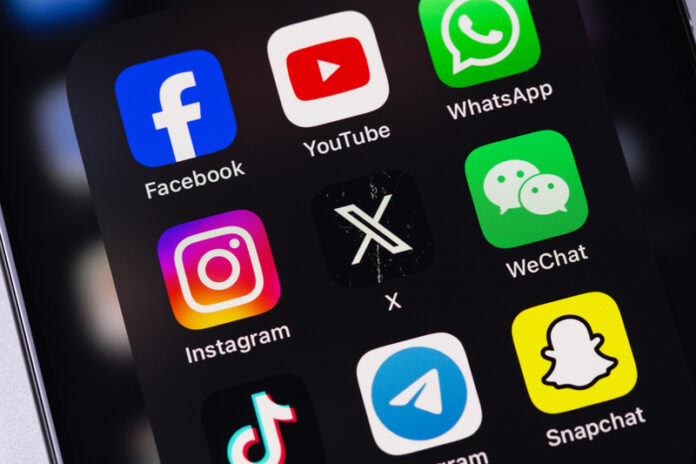
Elon Musk bought Twitter and proceeded to try and burn it down. Now he is rebuilding it and wants to turn the rebranded social media app called X into a Western version of China’s WeChat. Instead of being just a place for users to promote things that interest them, X if Musk can pull it off will combine messaging, news, shopping and banking.
He already has experience in creating a banking app with PayPal. Musk in 1999 was a codeveloper of X.com. The app offered users the ability to send and receive money transfers. A year later it merged with Confinity, a company founded in 1998 that developed encryption software for handheld devices. The combined companies became PayPal where Musk served as CEO until 2002.
To become the Western version of WeChat, you need to know more about the latter and how it came into being. WeChat in 2011 was spun out of Tencent, the China-based social media, games, television, cinema, music, e-commerce, medical technology, and comics online publisher.
Tencent is best known for gaming software. WeChat was as much a branding exercise as it was a way to bundle multi-purpose messaging services that included text, voice, video and group chat, social media feeds and a mobile payment system. Today, WeChat is the third largest messaging app in the world trailing only Meta’s WhatsApp and Messenger. It has more than 1.2 billion monthly active users.
Online payment systems already are well established. I am a PayPal user and have been for more than a decade. PayPal has worked well for me. It is easy to use. I can move money around dealing with currency conversions seamlessly. I can deposit money into my local bank from PayPal. I can top up my PayPal account using my bank debit or credit cards. I don’t think of PayPal as a bank and have never thought that the money I leave there could earn interest.
To emulate WeChat, X will need a payment system like PayPal. Musk wants X users to store money in X accounts. To encourage them, he may add a wrinkle to online money-handling apps by offering better-than-average yields on retained “bank” balances. That could be the differentiator that will get PayPal users to move to X in the future.
Another challenge for X to become an online bank will be getting regulatory approval in the United States and elsewhere. As of the writing of this posting, X has payment licenses established in 28 U.S. states. He will need national coverage to make this work in the U.S. and get buy-in from foreign regulators to establish X as a prime sender and receiver of money across the globe.
More than the regulatory challenges will be a reluctance from the global online community to try another online payment system when the one they already use works for them. X, today, is a social messaging app that posts information, disinformation and rumours. That’s far from a banking app that instills trust. Further, Musk, during the acquisition of Twitter seriously disrupted the business with user numbers dropping dramatically in the first year. With all his tweaking so far revenue has never fully recovered to where it was before he spent $44 billion on it.
The Twitter acquisition isn’t the type of business where Musk has excelled. He is best at being a pioneer. Think about the companies he is known for:
- SpaceX has pioneered the partial reuse of rockets driving down launch costs and becoming a preferred partner of NASA in sending crews to the International Space Station and for the upcoming Artemis return to the Moon.
- Tesla has established the modern electric vehicle marketplace and has created an alternative to fossil-fuel-powered cars for personal travel. Government subsidies to electric vehicle buyers have furthered Tesla’s growth.
- Starlink has pioneered the development of a global telecommunications network using a growing constellation of satellites bringing the Internet to billions.
X would be a WeChat clone, a competitor trying to establish a business where the turf belongs to the Chinese app and others. If any business could have challenged WeChat, I would have thought that Meta’s Facebook, Messenger and WhatsApp were far better positioned than X to add online banking and payment services. But Mark Zuckerberg, unlike Musk, hasn’t expressed establishing Meta as a WeChat competitor.
Nor have Google and Microsoft who would be as likely to add online banking and money-handling apps to their offerings. Today, WeChat’s main competition in the West comes from established big banks with their online offerings, and online apps like PayPal, Payoneer, Skrill, Remitly, Wise, Venmo, Zelle, and Cash App. How will Musk get users of any of these to move to X let alone grab marketshare from WeChat?
When it comes to banking and payment services, users tend to be conservative. If “it ain’t broke, don’t fix it,” is a common mentality for many when handling their money online. Musk can do what banking competitors do to encourage consumers to switch to them by offering free stuff or cash. He can try this to move people like me to abandon PayPal. Likely, however, existing apps will find ways to retain their customer base.
To find new ways to grow X into a WeChat for the West, Musk will have to do far more than just rollout “me-too” services within the social media company he acquired and messed around with for the last two years.








